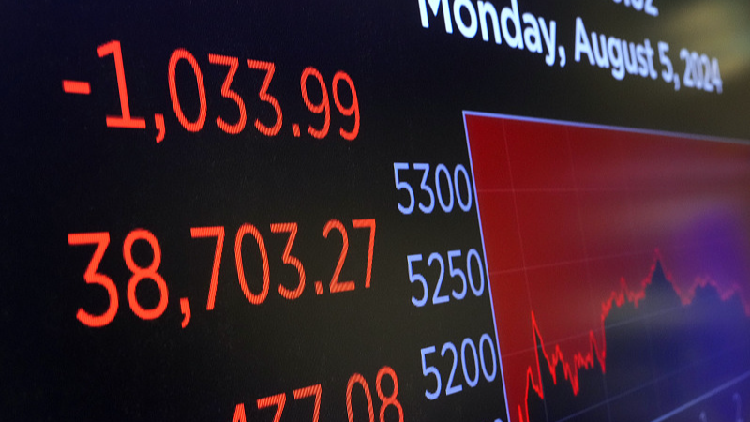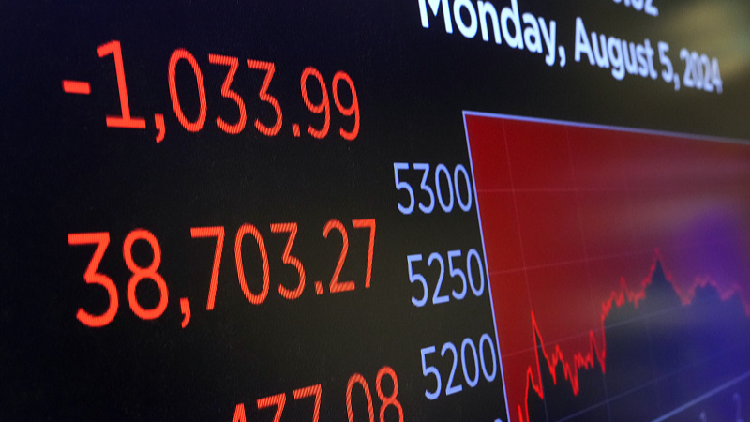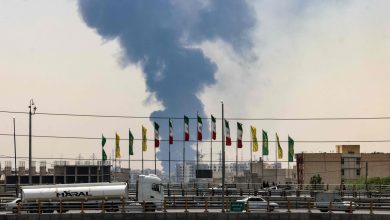Global stocks tumble as U.S. recession fears rise

[ad_1]

Global markets suffered turmoil on “Black Monday” as the three major U.S. stocks slumped over fears of the country’s slowing growth. The Dow Jones Industrial Average and S&P 500 tumbled 2.6 percent and 3.0 percent, respectively, and closed out their worst day since September 2022, while the Nasdaq Composite fell 3.43 percent.
The Asia-Pacific markets were also hard hit on Monday, with Japan’s Nikkei Index plunging 12 percent and South Korea’s KOSPI Index dropping 9 percent. However, in a turnaround during Tuesday’s opening, the Asia-Pacific markets rebounded, regaining some of their previous losses.
<img src='https://news.cgtn.com/news/2024-08-06/Global-stocks-tumble-as-U-S-recession-fears-rise-1vQnn2N3XGM/img/07b5281e3ed04a96a740e60a6d438f25/07b5281e3ed04a96a740e60a6d438f25.jpeg' alt='U.S. July unemployment rate rose to 4.3%. /CFP'
Investor concerns
The market panic followed Friday’s disappointing July U.S. jobs report. Nonfarm payrolls increased by just 114,000, significantly below market expectations, while the unemployment rate rose to 4.3 percent, the highest level since October 2021.
Investors are also concerned whether the U.S. Federal Reserve would cut interest rates in September, with the central bank holding the interest rate stable at 5.25 percent to 5.5 percent for the eighth consecutive meeting last week.
Economists at Goldman Sachs raised the probability of the U.S. economy slipping into a recession within the next 12 months from 15 percent to 25 percent, in a report to clients on Sunday.
“Investors are afraid the Fed is running late. Friday’s report shifts the debate from when officials will cut to how large their reduction next month should be: a traditional quarter-point cut or the larger half-point reduction, such as what occurred on the eve of recessions in 2001 and 2007,” wrote The Wall Street Journal’s chief economics correspondent Nick Timiraos in an opinion article.
Asia-Pacific markets rebound after substantial losses
On Tuesday, the benchmark Nikkei 225 index finished 10.23 percent higher and South Korea’s Kospi was up by 3.3 percent.
However, short-term volatility in the stock market remains as the market now believes the U.S. dollar has not yet stabilized against the Japanese yen, analysts from UBS Chief Investment Office wrote in a research report on Tuesday, according to CNN.
(Pics via CFP)
[ad_2]
Source link





